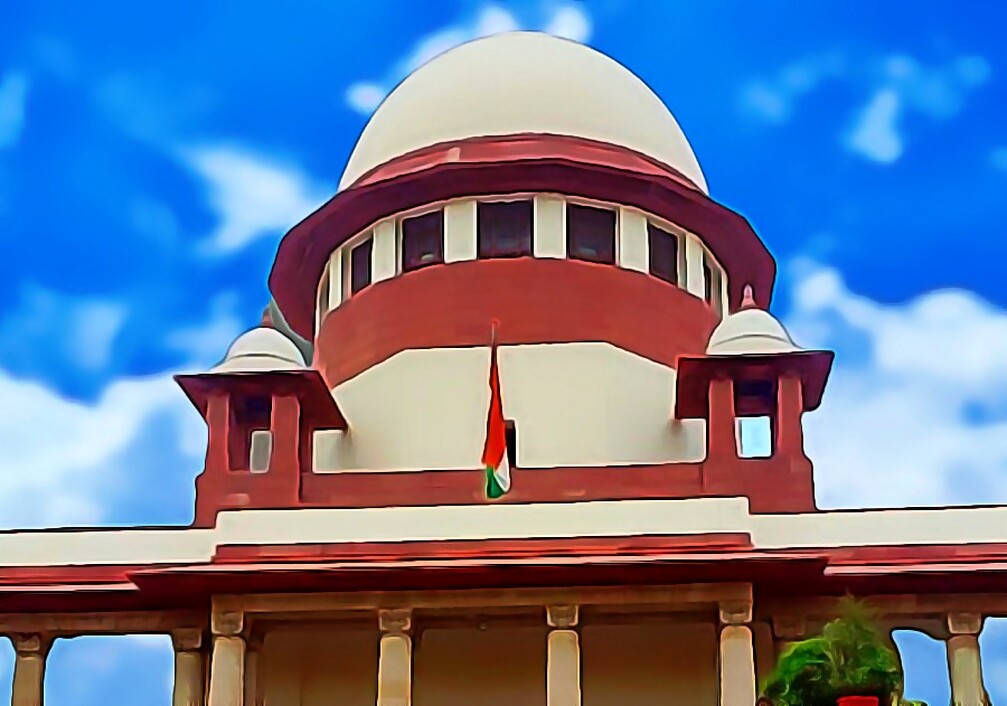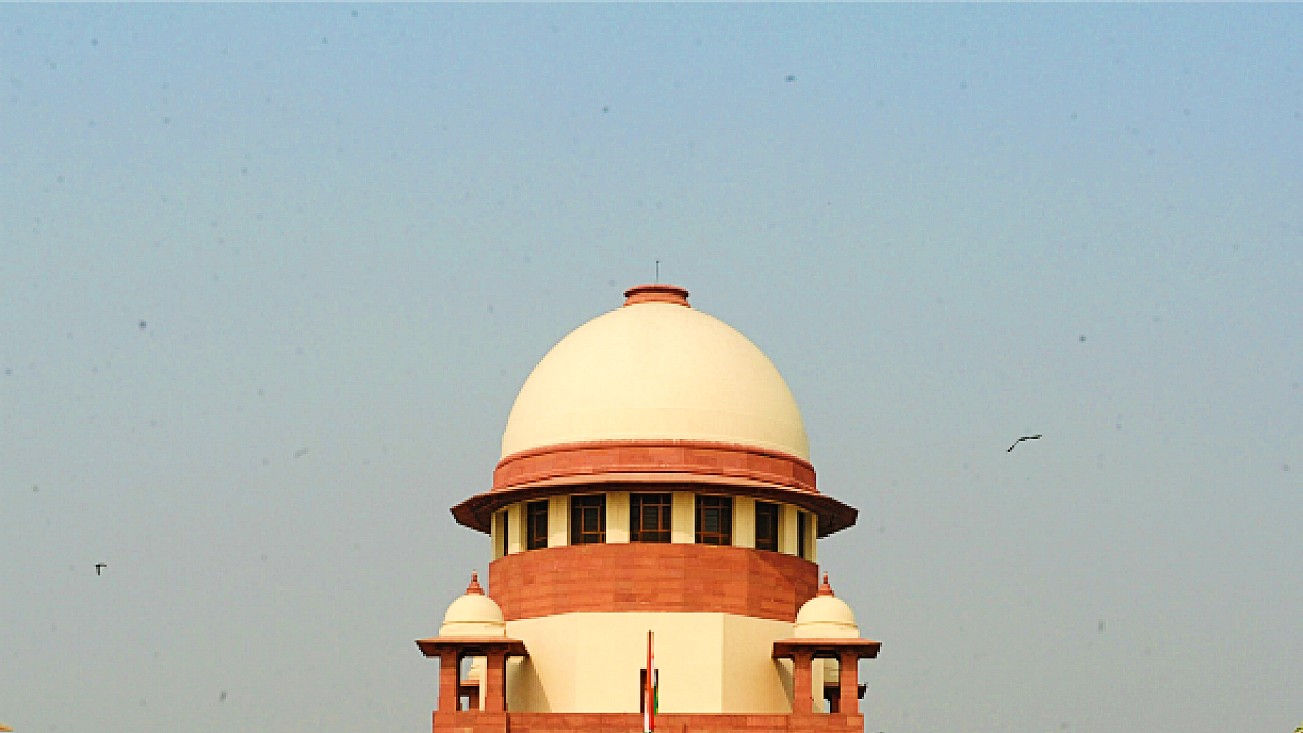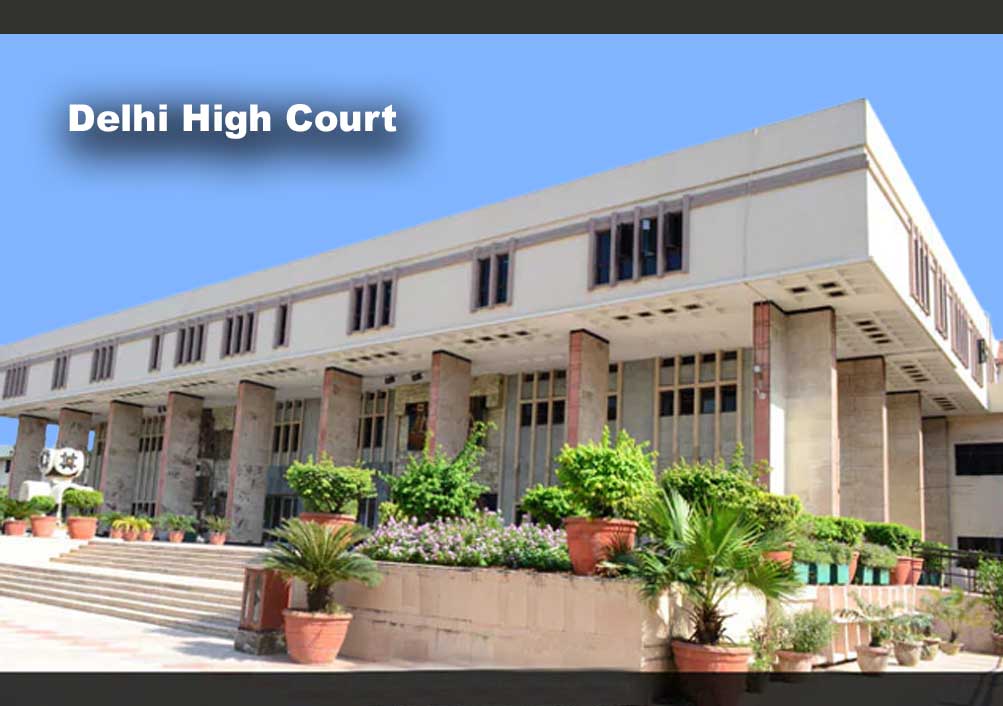In W.P. (C) 11031 of 2022- DEL HC- Courts can set aside order of punishment if Departmental Inquiry was not conducted properly: Delhi High Court partly upholds order of Central Administrative Tribunal, sets aside inquiry proceedings along with penalty since Department failed to examine relevant witnesses
Justice V. Kameswar Rao and Justice Anoop Kumar Mendiratta [02-06-2023]

Read Order: Union of India v Surender Kumar
Simran Singh
New Delhi, June 7, 2023: The Delhi High Court partly upheld the order passed by the Central Administrative Tribunal to the extent of setting aside the inquiry proceedings along with the penalty order since the Department failed to examine relevant witnesses. It was held that it was a settled legal position that once the Court sets aside an order of punishment on the ground that the inquiry was not properly conducted, the Disciplinary Authority was to conduct the inquiry from the point it stood vitiated.
The Division Bench of Justice V. Kameswar Rao and Justice Anoop Kumar Mendiratta held that the failure of the department to examine the relevant witness from the Board in the disciplinary proceedings was crucial and consequently the Tribunal had rightly set aside the inquiry proceedings. It was further stated that the FIR in itself was not an evidence without actual proof of facts stated therein.
The Bench noted that the statement of the respondent recorded in defence had not been placed on record or even discussed in the Inquiry Report. Neither, had it been reflected in case the questions were put up to the respondent in respect of the evidence appearing against him during the course of inquiry as contemplated under Rule 14(18) of Central Civil Services (Classification, Control and Appeal), 1965 (CCS (CCA) Rules). The complete record of inquiry proceedings had not been placed on file.
“Rule 14(18) of CCS (CCA) Rules, 1965 has been formulated for enabling the delinquent official to rebut and explain the circumstances appearing against him in evidence. The Inquiry Officer, as such, is obligated to put the incriminating evidence to the respondent in order to give him a proper opportunity of explaining the circumstances appearing against him unless he is examined in defence.”
The Court had relied upon Ministry of Finance v. S.B. Ramesh, wherein the Supreme Court had held that Rule 14(18) of CCS (CCA) Rules, 1965 was mandatory. Thus the Court agreed with the finding of the Tribunal to the extent of setting aside the inquiry proceedings along with the penalty order with liberty to proceed in the matter in accordance with law. However, was unable to agree with the directions of the Tribunal that the respondent be re-instated forthwith and be entitled for consequential benefits in accordance with the relevant rules.
It was the case of the petitioner that the respondent was appointed as a Caretaker in Safdarjung Hospital on 25-07-1986, as per Recruitment Rules on the basis of matriculation certificate i.e. Higher Secondary School Examination 1982 from the Board of Secondary Education, Madhya Pradesh, Bhopal and was promoted in the course of his service to the post of Chief Sanitary Superintendent on 01-01-2000. It was alleged that the respondent had failed in the Higher Secondary Examination and had got the Job in the Hospital by forging the results and marks in the Mark Sheet submitted with the department.
The departmental inquiry had been challenged by the respondent/delinquent official before the Tribunal primarily on the ground of violation of principles of natural justice, on account of failure to examine the relevant witnesses to prove the documents and follow the procedure as contemplated in Rule 14 of CCS (CCA) Rules.
The Bench referred to the case of Union of India v. P. Gunasekaran wherein the scope of the powers of judicial review in disciplinary proceedings were summarised stating that the High Court should not act as a second Court of First Appeal and should not venture into re-appreciating of evidence under the writ jurisdiction. However, in the case of Pravin Kumar v. Union of India it was observed that the judicial review was to ensure fairness in treatment and fairness of conclusion and ought to be used to correct manifest errors of law or procedure, which might result in significant injustice or incase of bias or gross unreasonableness of outcome. Thus, the court stated that the judicial review was a review of judicial making process and not merits of decision itself.
The Court upon pursuing the impugned order dated 12-01-2022 passed by the Tribunal revealed that the Inquiry Report dated 22-12-2017, penalty order dated 17-01-2018 passed by the Disciplinary Authority and order dated 24-10-2018 passed by the Appellate Authority had been set aside by the Tribunal upholding the contentions raised on behalf of the respondent that the inquiry has been conducted in violation of provisions of Rule 14 of CCS (CCA) Rules and orders were passed by the Disciplinary Authority as well as Appellate Authority in a mechanical manner, without recording any reasons and/or dealing with the grounds taken by the respondent.
The Bench noted that the disciplinary proceedings were initiated by the department only on receipt of complaint from the Central Vigilance Commission wherein the identity of the complainant was directed to be kept confidential in view of Public Interest Disclosure Resolution. In response to the complaint, respondent was requested to furnish the original certificate which he later on claimed to have submitted/deposited with the department. The aforesaid stand of respondent was disputed by the petitioners and it was claimed to be false as the dispatch/receipt number was stated to be discrepant to the practice followed at the relevant time. Left with no other option, the department had to forward the photocopy of Higher Secondary Certificate for verification by the Board of Secondary Education, Madhya Pradesh, Bhopal which bore certificate ‘SNo. 236825 Roll No. 1557766’ in the name of Surender Kumar S/o Shri Ishwar Singh.
In response to request for verification by the department, letters dated 18-12-2015 and 25-06-2016, were received from the Office of Board of Secondary Education, Madhya Pradesh, Bhopal, wherein it was stated that upon comparison, various discrepancies/variations had been observed in the certificate forwarded by the department and record of relevant Roll No. maintained by the Board and stated that the respondent had failed in the said examination having scored 256 marks.
The Court disagreed with the observations of the Tribunal that some of the questions put to the respondent on 06-10-2017, in any manner shifted the burden of proof to the respondent to prove his innocence. “In law, it is a common ground that if the Inquiry Officer conducts the inquiry proceedings as a Prosecutor and puts leading questions on prosecution witnesses exposing a prejudiced or biased mind or in any manner conducts the inquiry proceedings ignoring the principles of natural justice, the inquiry would be considered to be opposed to principles of natural justice. However, the Inquiring Authority is entitled to put questions to the witnesses for clarification if it becomes necessary, so long the delinquent employee is permitted to cross-examine the witnesses after the Inquiry Officer questions the witnesses. The Inquiry Officer, with a view to arrive at the truth or to obtain clarifications, appears to have put questions to the respondent.”
The Bench stated that the Tribunal had upheld the contentions raised on behalf of the respondent finding deficiencies in the conduct of inquiry, in violation of provisions of Rule 14 of CCS (CCA) Rules on the ground that instead of examining the concerned Administrative Officer (AO) as a witness on behalf of the department, one Ram Niwas, AO had appeared as a witness without issuing of any formal order by the Disciplinary Authority. It was also held that the Inquiry Officer did not question the respondent on the circumstances appearing against him in the evidence for the purpose of enabling him to explain the circumstances appearing in the evidence. Further, the grounds taken by the respondent were neither considered by the Disciplinary Authority vide order dated 17-01-2018, nor by the Appellate Authority in the subsequent appeal preferred by the respondent.
“It needed to be kept in perspective that for purpose of proving the verification report qua the certificate in question, the Inquiry Officer was required to prove the same by examining the official from the Board or by examining the official from the department who may have obtained the verification report from the concerned Board. This could have ensured a fair and proper opportunity to the respondent for furnishing his defence/explanation, if any, qua the certificate in question. The substitute AO, who had not participated in obtaining the verification report, could not have proved the verification report received from the Board, on record.”
The Bench noted that in terms of Rule 14(18) of CCS (CCA) Rules, after the prosecution evidence was over, the charged officer was required to submit his statement of defence indicating his line of defence, if any. The evidence was to be led in the same manner giving an opportunity of cross- examination to the Presenting Officer. “Thereafter, the Inquiring Authority would have enquired the charged officer if he wished to appear as his own witness and in case the charged officer declined to do so, the Inquiring Authority was required to generally question him to explain any circumstances appearing against him.”
The Court opined that the order passed by the Tribunal directing the re-instatement of the respondent with back wages needed to be set aside. The case was further remitted back to the Disciplinary Authority to conduct the inquiry from the point it stood vitiated and to conclude the same within a period of six months from the date of passing of this order.
Sign up for our weekly newsletter to stay up to date on our product, events featured blog, special offer and all of the exciting things that take place here at Legitquest.




Add a Comment